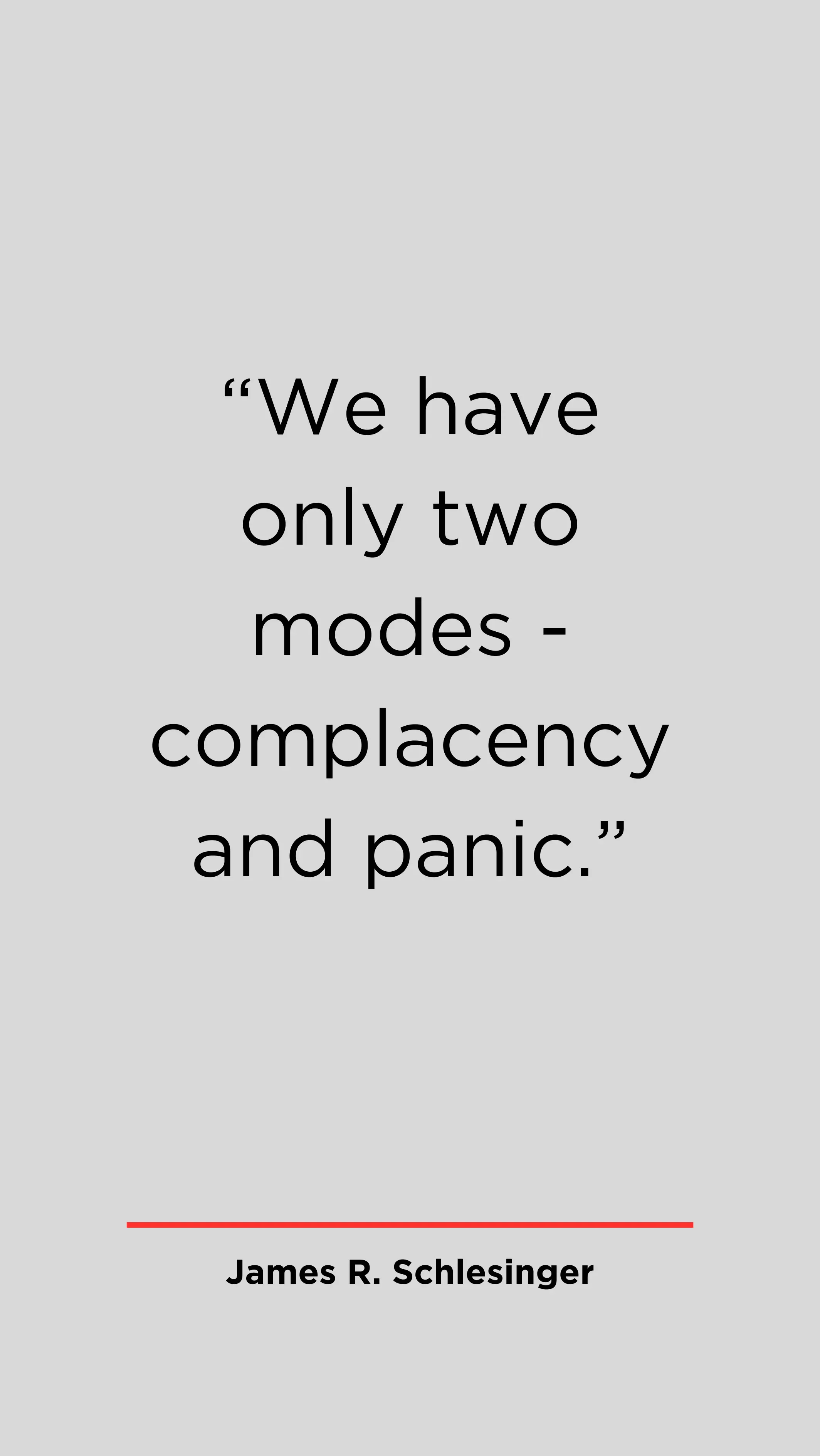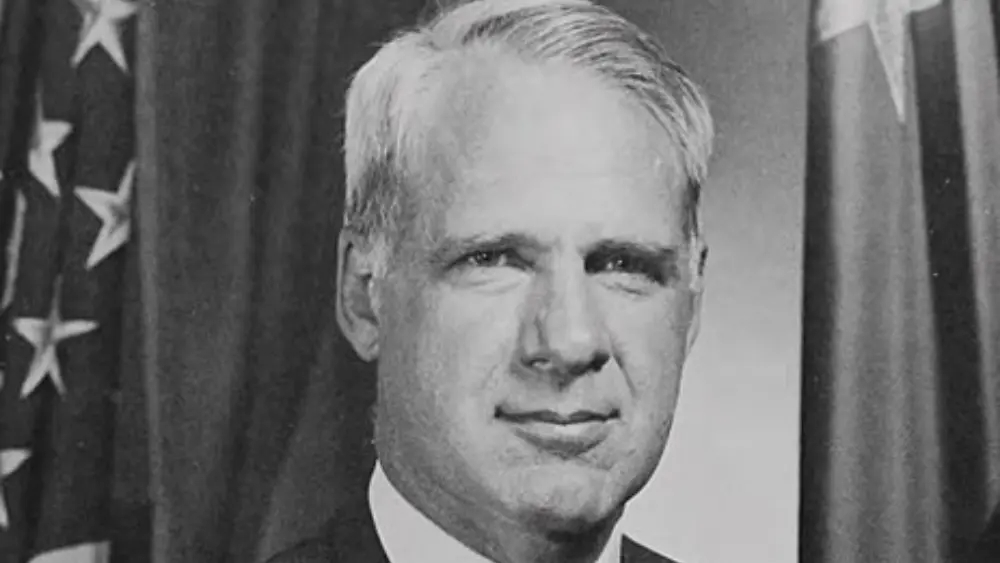James Rodney Schlesinger, born on February 15, 1929, was a prominent American statesman and scholar who played a pivotal role in shaping U.S. defense and intelligence policy during the critical years of the Cold War. Known for his intellectual rigor and strategic acumen, Schlesinger’s career spanned various roles in academia, government, and the military, leaving a lasting impact on national security.
Early Life and Academic Pursuits
Born into a family that valued intellectual pursuits, James R. Schlesinger’s early life in New York City laid the foundation for his distinguished academic career. Displaying a keen intellect and curiosity, Schlesinger developed a fascination with economics and political science from an early age. This intellectual curiosity propelled him to pursue higher education, setting the stage for a remarkable academic journey.
Schlesinger’s academic pursuits reached their zenith when he earned a Ph.D. from Harvard University, solidifying his credentials as a scholar. Armed with a deep understanding of the complexities of economics and political science, Schlesinger would go on to combine his academic expertise with a sense of duty to public service, marking the beginning of a career that would have a lasting impact on American national security and defense policy.
James R. Schlesinger: Harvard and RAND Corporation: A Scholar in National Security
James R. Schlesinger’s academic journey reached new heights during his time at Harvard, where he became renowned for his expertise in military and security studies. His deep dives into these disciplines not only showcased his intellectual prowess but also positioned him as a leading authority in the evolving landscape of national security. Schlesinger’s rigorous analysis and scholarly contributions at Harvard laid the groundwork for his future roles at the intersection of academia and government, where he would apply his insights to address the pressing challenges of the Cold War.
The RAND Corporation, a think tank known for its cutting-edge research in defense and security matters, became another crucible for Schlesinger’s intellectual development. His affiliation with RAND further solidified his reputation as a scholar in national security. Immersed in an environment that valued innovative thinking and strategic analysis, Schlesinger honed his skills and contributed to shaping the intellectual foundations of U.S. defense policies during a crucial period in history. This dual academic engagement at Harvard and RAND marked a pivotal phase in Schlesinger’s journey, foreshadowing his future roles in government where he would navigate the complexities of Cold War geopolitics with a blend of scholarly insight and practical acumen.
Advisor to the Secretary of Defense: Shaping Cold War Strategy
During the late 1950s and early 1960s, James R. Schlesinger played a vital role as an advisor to the Secretary of Defense, contributing invaluable insights into military strategy and nuclear weapons policy. This era was marked by the intense geopolitical competition of the Cold War, and Schlesinger’s expertise became particularly significant as the United States grappled with the strategic challenges posed by the Soviet Union. His role in advising on defense matters allowed him to shape the Pentagon’s approach to deterrence and defense, influencing policies that were pivotal to maintaining the balance of power during this critical period.
Schlesinger’s contributions were characterized by a nuanced understanding of the evolving dynamics of the Cold War. As the United States sought to navigate the complexities of nuclear deterrence and military strategy, Schlesinger’s insights played a crucial role in shaping the nation’s defense posture. His work as an advisor during this time laid the groundwork for his subsequent roles in higher echelons of government, where he continued to influence and implement strategic policies that addressed the challenges of the Cold War.
James R. Schlesinger: Secretary of Defense: Leading the Pentagon
James R. Schlesinger assumed the role of Secretary of Defense in 1973, marking a critical period in the Pentagon’s history. His appointment by President Richard Nixon came at a time when the United States was grappling with the concluding stages of the Vietnam War and facing heightened Cold War tensions. Schlesinger, known for his intellectual rigor and strategic acumen, brought a steady hand to defense policy during this complex era.
As Secretary of Defense, Schlesinger prioritized military readiness and sought to restore a sense of strategic balance. Aware of the challenges posed by the Vietnam War’s conclusion and the evolving dynamics of superpower relations, he worked to strengthen the capabilities of the U.S. military. Schlesinger’s tenure saw a focus on enhancing the readiness of the armed forces and maintaining a robust defense posture, all while navigating the intricate geopolitical landscape of the Cold War. His leadership at the Pentagon during this critical juncture reflected his commitment to ensuring the security and preparedness of the United States in the face of global challenges.
Energy Czar and CIA Director: Expanding Responsibilities
James R. Schlesinger’s contributions expanded beyond the Department of Defense, leading him to take on pivotal roles in energy policy and intelligence. In response to the oil crisis of the late 1970s, President Jimmy Carter appointed Schlesinger as the first Secretary of Energy in 1977. In this capacity, Schlesinger played a crucial role in developing and implementing policies to address the nation’s energy challenges. His tenure at the Department of Energy marked a period of intense focus on energy security, efficiency, and the diversification of energy sources to reduce dependence on foreign oil.
Subsequently, Schlesinger assumed the role of Director of Central Intelligence (DCI) in 1973, where he faced the intricate challenges of overseeing the U.S. intelligence community during a time of global flux. As DCI, Schlesinger worked to enhance the coordination and effectiveness of intelligence agencies, grappling with issues ranging from Cold War espionage to emerging global threats. His tenure in these key positions underscored his versatility and ability to navigate complex and critical areas of national security, making him a central figure in shaping U.S. policy during a transformative period.
James R. Schlesinger: Known for in the U.S. Military: Nuclear Strategy and Modernization
James R. Schlesinger’s tenure in various defense-related roles solidified his reputation as a key figure in shaping U.S. military nuclear strategy and modernization. Serving as the Secretary of Defense from 1973 to 1975, Schlesinger faced the complex challenges of the Cold War era, marked by the strategic competition between the United States and the Soviet Union. During this period, he focused on maintaining a robust and credible nuclear deterrent to deter potential adversaries, understanding the critical role nuclear capabilities played in the geopolitical landscape.
Schlesinger’s commitment to modernizing the U.S. military’s nuclear forces extended beyond his time as Secretary of Defense. His insights and influence persisted as he continued to contribute to the discourse on national security and defense policy. Through his diverse roles, Schlesinger made a lasting impact on U.S. nuclear strategy, leaving behind a legacy defined by his commitment to national security amid a constantly changing global landscape.

Later Years: Scholarly Contributions and Legacy
In the later years of his career, James R. Schlesinger continued to be a prominent figure in the realms of scholarship and public discourse on national security. Drawing upon his extensive experience and expertise gained from his tenure in various high-profile government positions, Schlesinger authored numerous articles and books that delved into the complexities of Cold War strategy, military policy, and global geopolitics. His writings were characterized by a depth of analysis and a keen understanding of the intricate challenges facing the United States in a rapidly changing world.
Schlesinger’s scholarly contributions were not only valuable for historians and policymakers but also for the broader public seeking insights into the critical issues of national security. His legacy as a thoughtful and influential thinker persisted, serving as a testament to his enduring impact on the intellectual landscape of defense policy and strategy. Beyond the corridors of power, Schlesinger’s later years were marked by a commitment to ensuring that the lessons of the past informed contemporary discussions on security and governance.










